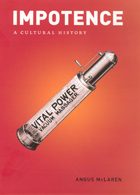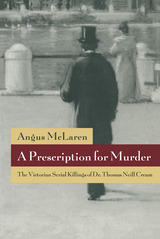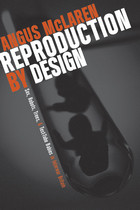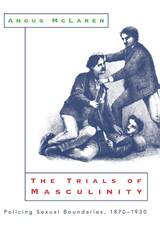
As anyone who has watched television in recent years can attest, we live in the age of Viagra. From Bob Dole to Mike Ditka to late-night comedians, our culture has been engaged in one long, frank, and very public talk about impotence—and our newfound pharmaceutical solutions. But as Angus McLaren shows us in Impotence, the first cultural history of the subject, the failure of men to rise to the occasion has been a recurrent topic since the dawn of human culture.
Drawing on a dazzling range of sources from across centuries, McLaren demonstrates how male sexuality was constructed around the idea of potency, from times past when it was essential for the purpose of siring children, to today, when successful sex is viewed as a component of a healthy emotional life. Along the way, Impotence enlightens and fascinates with tales of sexual failure and its remedies—for example, had Ditka lived in ancient Mesopotamia, he might have recited spells while eating roots and plants rather than pills—and explanations, which over the years have included witchcraft, shell-shock, masturbation, feminism, and the Oedipal complex. McLaren also explores the surprising political and social effects of impotence, from the revolutionary unrest fueled by Louis XVI’s failure to consummate his marriage to the boost given the fledgling American republic by George Washington’s failure to found a dynasty. Each age, McLaren shows, turns impotence to its own purposes, using it to help define what is normal and healthy for men, their relationships, and society.
From marraige manuals to metrosexuals, from Renaissance Italy to Hollywood movies, Impotence is a serious but highly entertaining examination of a problem that humanity has simultaneously regarded as life’s greatest tragedy and its greatest joke.



Sexual blackmail first reached public notice in the late eighteenth century when laws against sodomy were exploited by the unscrupulous to extort money from those they could entrap. Angus McLaren chronicles this parasitic crime, tracing its expansion in England and the United States through the Victorian era and into the first half of the twentieth century. The labeling of certain sexual acts as disreputable, if not actually criminal--abortion, infidelity, prostitution, and homosexuality--armed would-be blackmailers and led to a crescendo of court cases and public scandals in the 1920s and 1930s. As the importance of sexual respectability was inflated, so too was the spectacle of its loss.
Charting the rise and fall of sexual taboos and the shifting tides of shame, McLaren enables us to survey evolving sexual practices and discussions. He has mined the archives to tell his story through a host of fascinating characters and cases, from male bounders to designing women, from badger games to gold diggers, from victimless crimes to homosexual outing. He shows how these stories shocked, educated, entertained, and destroyed the lives of their victims. He also demonstrates how muckraking journalists, con men, and vengeful women determined the boundaries of sexual respectability and damned those considered deviant. Ultimately, the sexual revolution of the 1960s blurred the long-rigid lines of respectability, leading to a rapid decline of blackmail fears. This fascinating view of the impact of regulating sexuality from the late Victorian Age to our own time demonstrates the centrality of blackmail to sexual practices, deviance, and the law.

"Inherently interesting. . . . Exhibitionism, pornography, and deception all have their place here."—Library Journal
"An appealing wealth of evidence of what trials can reveal about the boundaries of men's roles around the turn of the century."—Kirkus Reviews
"It is difficult to imagine a better guide to the most notorious scandals of our great-grandparents' day."—Graham Rosenstock, Lambda Book Report
READERS
Browse our collection.
PUBLISHERS
See BiblioVault's publisher services.
STUDENT SERVICES
Files for college accessibility offices.
UChicago Accessibility Resources
home | accessibility | search | about | contact us
BiblioVault ® 2001 - 2024
The University of Chicago Press









